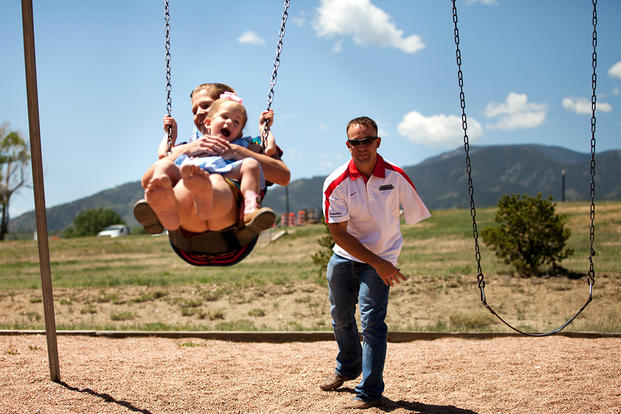"I never thought this would happen to us." Lisa squeezed her husband’s hand as the nurse finished changing his leg dressing. " How will the kids react when they find out Daddy lost his leg? How am I even going to tell them?"
Lisa knew that nothing could have prepared her for that phone call last month. As thankful as she was that Matt’s life had been spared, they both knew that the results of his injury would have a huge impact on their family -- especially the kids.
A 2014 Marine Corps Scholarship Foundation study says the children of wounded warriors are now being described as “the hidden casualties of war.” Many of these children are struggling not only to grasp the impact of their parent’s injury, but are suffering the loss of attention as the focus is naturally shifted to the one recovering.
Understandably, wounded warrior families are under an enormous amount of stress during the recovery and transition phases. As these children adjust to the family’s new circumstances, spending quality time together will enable them to better cope with present hardships and prepare them for upcoming changes. Reading aloud is a simple yet effective means of opening up communication, encouraging development, and building family unity.
Children who have a wounded parent will naturally have lots of questions. Answering those questions can be a challenge: too much information may overwhelm the child, and too little information might leave a youngster imagining the injury to be much worse than it actually is. Reading together is an effective way to open up the discussion of what the child is thinking. Many children’s books deal with common problems that little ones face (i.e. fear of the dark, bullies, illness), which will likely lead to discussing bigger issues such as their parent’s injury.
Reading aloud to children for just 15 minutes a day is key to their development according to research from the non-profit Read Aloud 15 Minutes. Encouraging healthy development is especially important during times of high stress, as it will affect a child’s general outlook in life, and this will either positively or negatively impact their future. Reading together not only develops language and learning skills, it also emotionally connects parent and child. Children with strong minds and spirits will be better able to cope with the family changes resulting from a major injury.
Ultimately, the goal of wounded warrior families, even beyond recovery of the injured parent, is resiliency. But a resilient family must first be a strong family. Reading together, whether a parent one-on-one with a child, or as an entire family, can build unity during a crucial time. Families who know how to communicate, who are working together to maintain a nurturing home environment, will be better able to roll with the punches and come out stronger in the end.
Major injury is life-changing, both for the wounded and the entire family. Stress is to be expected as family dynamics shift, but keeping kids mentally and emotionally strong will help prevent them from becoming “casualties” themselves. Spending quality time together, such as sharing a good book, is an effective way to help children communicate, develop, and be resilient -- not just in present circumstances, but for the future.
Sarah Dautel is the author of Ajax Bound for Glory (Woodley Books, November 2016), a children’s book inspired by honor, tragedy, and triumph. Visit her at www.ajaxboundforglory.com.


























